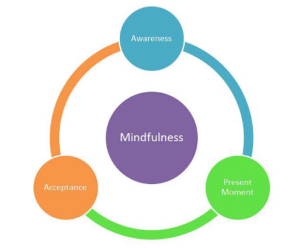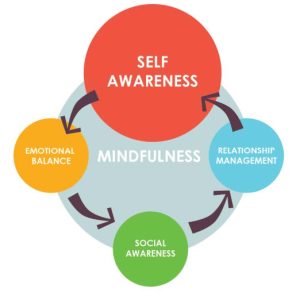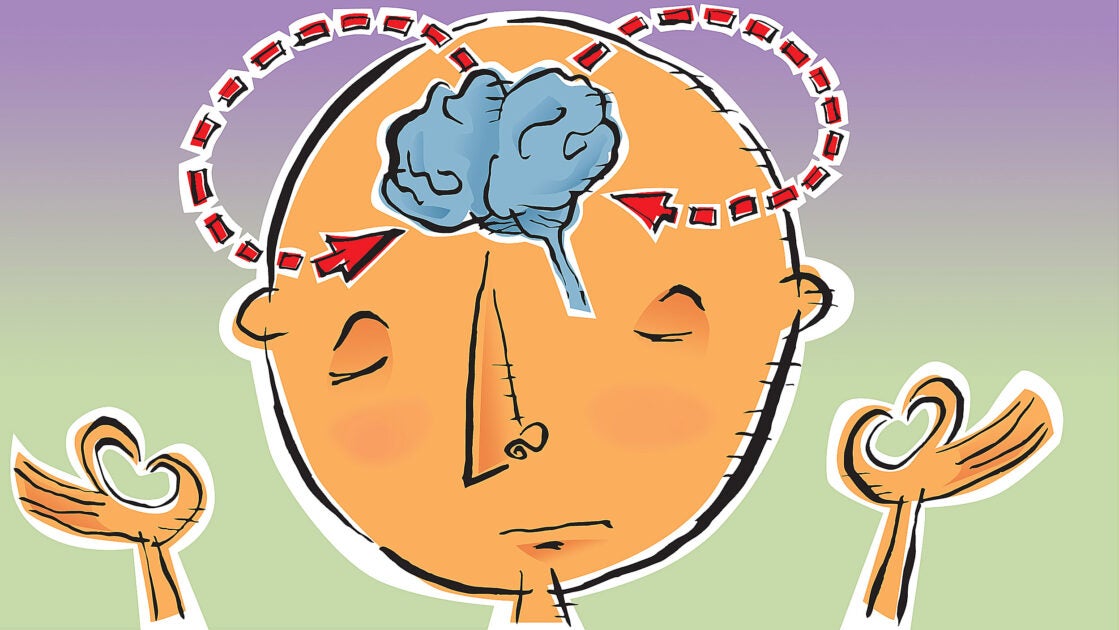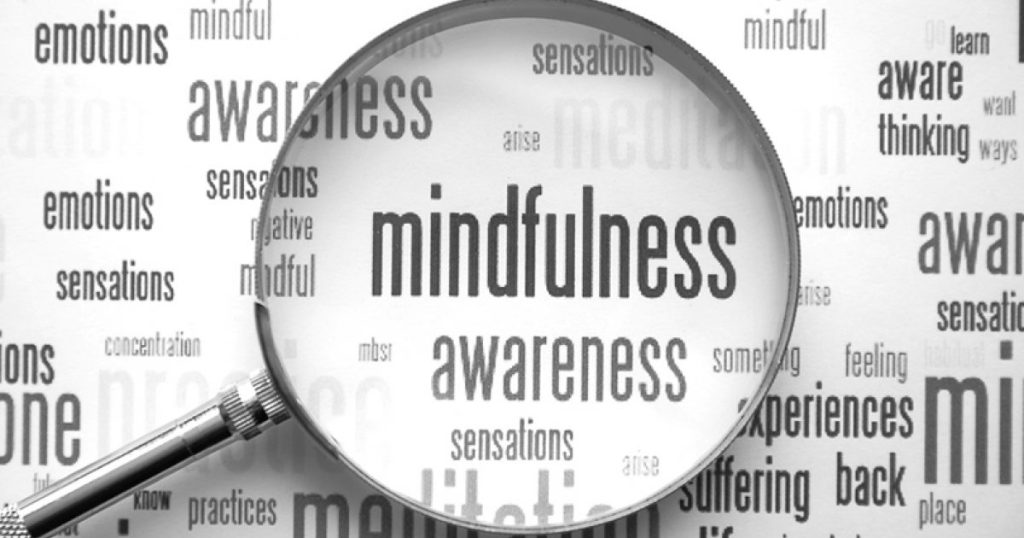What do you do when your anxiety takes over? What about when you can’t stop thinking about the past or future, and it’s ruining your present moment? There are many ways to deal with these types of problems. One way is mindfulness therapy. Mindfulness therapy is a type of psychotherapy that focuses on being aware of the current moment, without judging oneself for thoughts that come up. This blog post will discuss what mindfulness therapy is, how it works, and its benefits!
Contents
- 1 What Is Mindfulness Therapy?
- 2 Different Techniques of Mindfulness Therapy
- 3 Working of Mindfulness Therapy
- 4 Principles of Mindfulness Therapy
- 5 Benefits of Mindfulness Therapy
- 5.1 Helps To Reduce Stress
- 5.2 Helps To Reduce Anxiety
- 5.3 Helps To Reduce Depression
- 5.4 Helps To Improve Relationships
- 5.5 Helps To Improve Self-Esteem
- 5.6 Allows You To Take Risks
- 5.7 Teaches How To Be Patient
- 5.8 Teaches How To Let Go
- 5.9 Allows You To Trust Yourself
- 5.10 Makes You More Compassionate
- 5.11 Helps You Live In Present Moment
- 6 Conclusion
- 7 A Word From Therapy Mantra
What Is Mindfulness Therapy?
 Mindfulness therapy is a form of therapy that helps you focus on the present moment and allows you to accept your thoughts and feelings without judgment. This type of therapy can be helpful for everyday problems such as stress, anxiety, and depression. This type of therapy is also helpful for chronic pain and other health conditions. It also helps you learn how to manage your emotions and respond to difficult situations in a more positive way.
Mindfulness therapy is a form of therapy that helps you focus on the present moment and allows you to accept your thoughts and feelings without judgment. This type of therapy can be helpful for everyday problems such as stress, anxiety, and depression. This type of therapy is also helpful for chronic pain and other health conditions. It also helps you learn how to manage your emotions and respond to difficult situations in a more positive way.
This therapy is based on the idea that if you can focus on the present moment, you can accept your thoughts and feelings without judgment. This can help you manage your emotions better and respond to difficult situations in a more positive way.
Mindfulness therapy is based on mindfulness meditation, which is a form of meditation that focuses on the present moment. Mindfulness meditation helps you focus on your thoughts and feelings without judgment. This type of meditation can be helpful for everyday problems such as stress, anxiety, and depression. It also helps you learn how to manage your emotions and respond to difficult situations in a more positive way.
Different Techniques of Mindfulness Therapy
There are many techniques of mindfulness therapy. Some of these are:
Mindfulness Meditation
 This technique of mindfulness therapy involves focusing on your thoughts and feelings without judgment. This type of meditation can be helpful for everyday problems such as stress, anxiety, and depression. It also helps you learn how to manage your emotions and respond to difficult situations in a more positive way.
This technique of mindfulness therapy involves focusing on your thoughts and feelings without judgment. This type of meditation can be helpful for everyday problems such as stress, anxiety, and depression. It also helps you learn how to manage your emotions and respond to difficult situations in a more positive way.
Mindful Breathing
This technique of mindfulness therapy involves focusing on your breath and the sensations it creates. This type of breathing can be helpful for everyday problems such as stress, anxiety, and depression. It also helps you learn how to manage your emotions and respond to difficult situations in a more positive way.
Mindful Movement
 This technique of mindfulness therapy involves moving your body in a slow and deliberate way. This type of movement can be helpful for chronic pain and other health conditions. It also helps you learn how to manage your emotions and respond to difficult situations in a more positive way.
This technique of mindfulness therapy involves moving your body in a slow and deliberate way. This type of movement can be helpful for chronic pain and other health conditions. It also helps you learn how to manage your emotions and respond to difficult situations in a more positive way.
Mindful Eating
This technique of mindfulness therapy involves paying attention to the taste, smell, texture, and appearance of the food you are eating. This type of eating can be helpful for everyday problems such as stress, anxiety, and depression. It also helps you learn how to manage your emotions and respond to difficult situations in a more positive way
Self-Compassion Meditation
 This technique of mindfulness therapy involves focusing on thoughts or feelings that make you feel bad about yourself without judgment. This type of meditation can be helpful for everyday problems such as stress, anxiety, and depression. It also helps you learn how to manage your emotions and respond to difficult situations in a more positive way.
This technique of mindfulness therapy involves focusing on thoughts or feelings that make you feel bad about yourself without judgment. This type of meditation can be helpful for everyday problems such as stress, anxiety, and depression. It also helps you learn how to manage your emotions and respond to difficult situations in a more positive way.
Mindfulness-Based Cognitive Therapy (MBCT)
This technique of mindfulness therapy is based on cognitive therapy. It helps you become aware of your thoughts and feelings and teaches you how to change the negative thoughts that contribute to your stress, anxiety, or depression.
ACT
ACT is an acronym for Acceptance and Commitment Therapy. This type of therapy helps you accept your thoughts and feelings without judgment and teaches you how to take action on the things that are important to you.
Mindfulness-Based Stress Reduction (MBSR)
 This technique of mindfulness therapy is based on stress reduction. It helps you learn how to manage your stress and improve your well-being. This type of therapy comes in an eight-week group program and also a six-session individual course.
This technique of mindfulness therapy is based on stress reduction. It helps you learn how to manage your stress and improve your well-being. This type of therapy comes in an eight-week group program and also a six-session individual course.
Working of Mindfulness Therapy
The working of mindfulness therapy involves mindfulness meditation. It is a form of meditation that focuses on the present moment and teaches you to focus your thoughts and feelings without judgment or criticism.
This type of training helps you become more aware of your emotions, which can help you manage stress better, improve relationships with others, take care of yourself properly, and lead an overall healthier lifestyle.
Mindfulness therapy also uses different techniques to help you cope with stress and anxiety. For example, mindful breathing helps reduce the symptoms of depression; it also gives a sense of control over your life that can be helpful for everyday problems like work overload or financial difficulties.
Mindfulness therapy is often viewed as an alternative medicine technique because in some cases, this type of therapy may not involve the use of medications. However, combining mindfulness training with traditional medical treatment such as medication can result in better health outcomes than either one alone. In addition, mindfulness-based cognitive behavioral therapy (MBCT) teaches people how to think differently about their negative thoughts by looking at them more objectively.”
Principles of Mindfulness Therapy

There are many principles of mindfulness therapy that can be helpful for everyday problems. Some of these principles include:
Acceptance
This principle of mindfulness therapy teaches you to accept your thoughts and feelings without judgment. It also teaches you to accept the situation as it is without making any changes.
Mindfulness
This principle of mindfulness therapy teaches you how to be aware and non-judgmental about your thoughts, emotions, bodily sensations, surroundings, or anything else that triggers stress. This can help reduce everyday problems such as depression, anxiety, anger. It also gives a sense of control over your life in addition to improving relationships with others
Non-Judgmental Attitude
This principle of mindfulness therapy encourages you not to judge yourself, others, or the world around you. It also means accepting things as they are instead of always wanting them to be different than what they really are.
Patience
This principle of mindfulness therapy encourages you to be patient with your thoughts and feelings. It teaches the skillful use of patience, which can help reduce everyday problems like stress and anxiety.”
Letting Go
This principle of mindfulness therapy teaches you to let go of the outcome. It encourages risk-taking and helps reduce stress, anxiety, or depression by teaching you how to be more present in your life.”
Trust
This principle of mindfulness therapy encourages you to trust yourself, others, and the world around you. It also teaches how to develop healthy relationships with others by building trust.” It also means that you don’t have to do everything alone and that asking for help is okay.”
Benefits of Mindfulness Therapy

There are many benefits of mindfulness therapy that can be helpful for everyday problems like stress and anxiety. Some of these benefits include:
Helps To Reduce Stress
Mindfulness therapy can help to reduce stress by teaching you how to be more aware and non-judgmental of your thoughts, emotions, and bodily sensations. This can help you manage stress better in the long run.” This benefit can be helpful for everyday problems like work overload or financial difficulties.
Helps To Reduce Anxiety
Mindfulness therapy can help to reduce anxiety by teaching you how to be more aware and non-judgmental of your thoughts, emotions, and bodily sensations. This can help you manage anxiety better in the long run.” This benefit can be helpful for everyday problems like social anxiety or test anxiety.
Helps To Reduce Depression
This therapy can help to reduce depression by teaching you how to be more aware and non-judgmental of your thoughts, emotions, and bodily sensations. In addition, mindfulness-based cognitive behavioral therapy (MBCT) teaches people how to think differently about their negative thoughts by looking at them more objectively.” This benefit can be helpful for everyday problems like depression or bipolar disorder.
Helps To Improve Relationships
This therapy can help to improve relationships with others by building trust.” This benefit can be helpful for everyday problems such as improving your relationship with a significant other, parent, child, etc.” It also encourages healthy communication and can help to resolve conflicts.
Helps To Improve Self-Esteem
This therapy can help to improve self-esteem by teaching you how to be more accepting of yourself.” This benefit can be helpful for everyday problems such as low self-esteem or feeling insecure about oneself.
Allows You To Take Risks
This principle of this therapy encourages risk-taking and helps reduce stress, anxiety, or depression by teaching you how to be more present in your life.” This benefit can be helpful for everyday problems like a fear of failure or social phobia.
Teaches How To Be Patient
This therapy teaches the skillful use of patience. This can help reduce everyday problems like stress and anxiety.” This benefit can be helpful for everyday problems such as waiting in line or being stuck in traffic.
Teaches How To Let Go
This principle of mindfulness therapy teaches you to let go of the outcome.” This benefit can be helpful for everyday problems such as a fear of failure or social phobia.
Allows You To Trust Yourself
This principle of mindfulness therapy encourages you to trust yourself, others, and the world around you.” This benefit can be helpful for everyday problems such as trusting your intuition or feeling safe in new environments. This benefit can also encourage healthy relationships by teaching how to build trust.”
Makes You More Compassionate
This principle of mindfulness therapy encourages you to be more compassionate towards yourself and others.” This benefit can be helpful for everyday problems such as feeling compassion fatigue or being judgmental.
Helps You Live In Present Moment
It also helps you live in the present moment which can reduce stress, anxiety, and depression.” This benefit can be helpful for everyday problems such as living in the past or future, being scatter-brained, etc.”
Conclusion
In conclusion, mindfulness therapy can be a helpful tool for managing everyday problems. It teaches you how to be more aware and non-judgmental of your thoughts, emotions, and bodily sensations. This can help you manage stress better in the long run. In addition, mindfulness therapy can help to reduce anxiety, depression, and improve relationships with others. Lastly, mindfulness therapy encourages risk-taking which can lead to a less stressful life.
A Word From Therapy Mantra
Your mental health — your psychological, emotional, and social well-being — has an impact on every aspect of your life. Positive mental health essentially allows you to effectively deal with life’s everyday challenges.
Also, at Therapy Care, we have a team of therapists who provide affordable online therapy to assist you with issues such as depression, anxiety, stress, relationship, OCD, LGBTQ, and PTSD. You can take our mental health test. You can also book a free therapy or download our free Android or iOS app.


